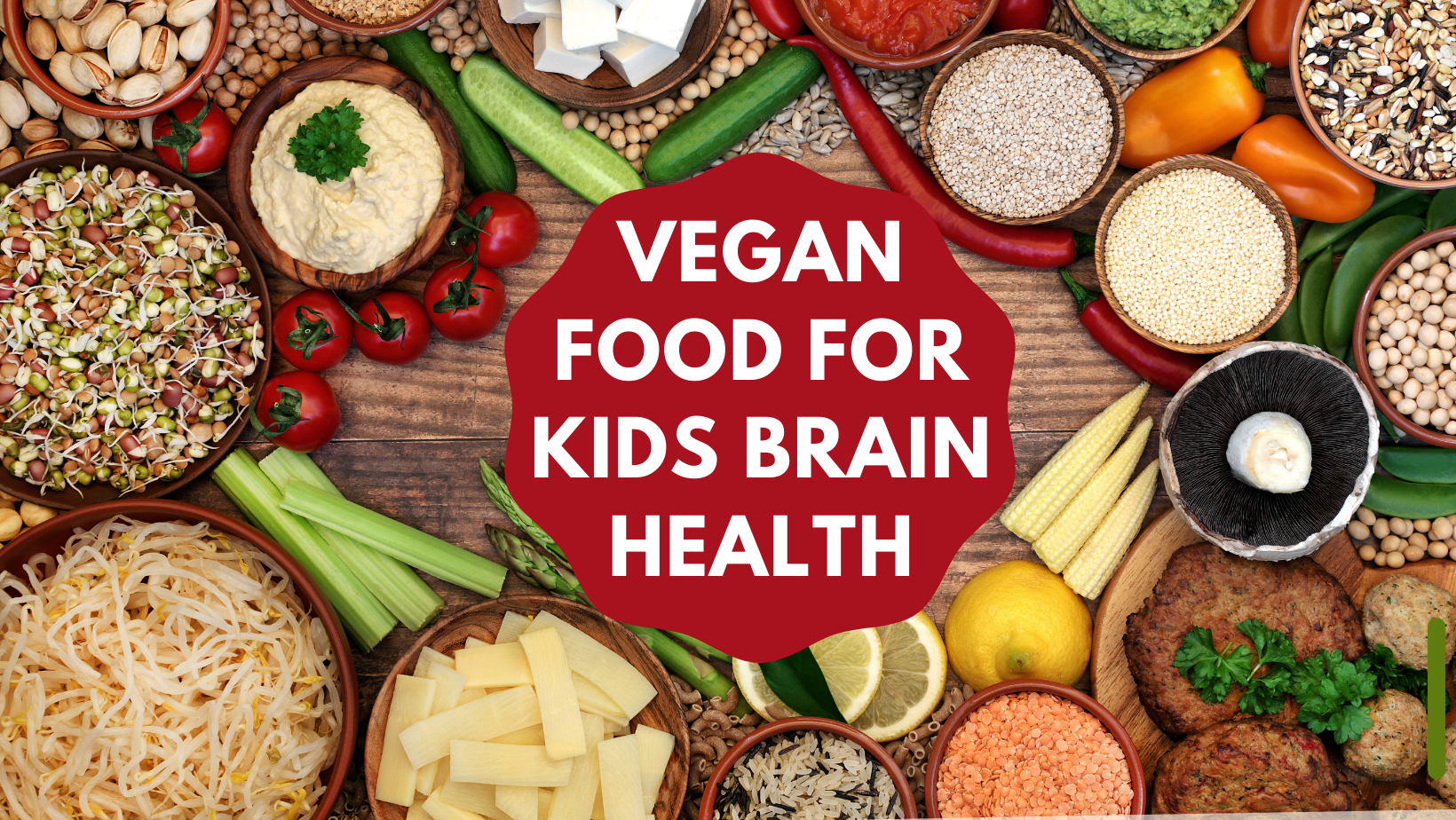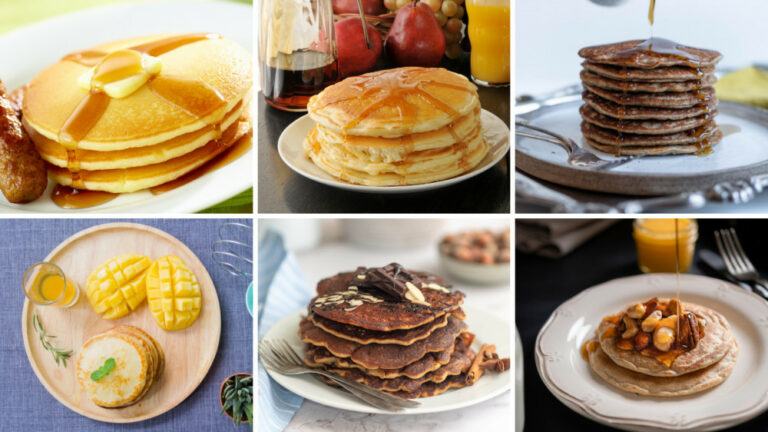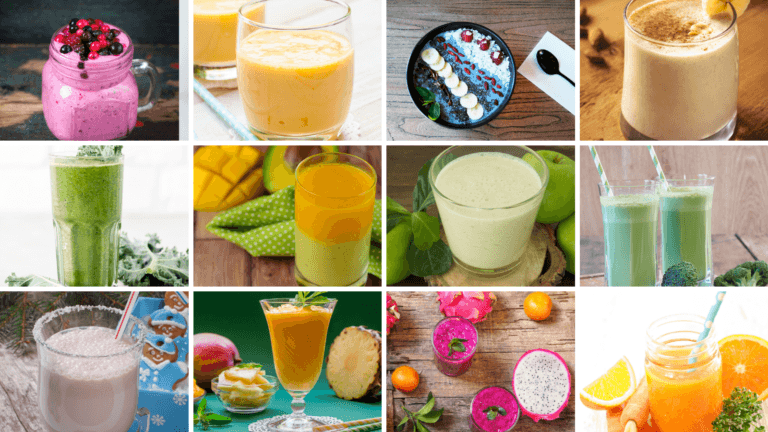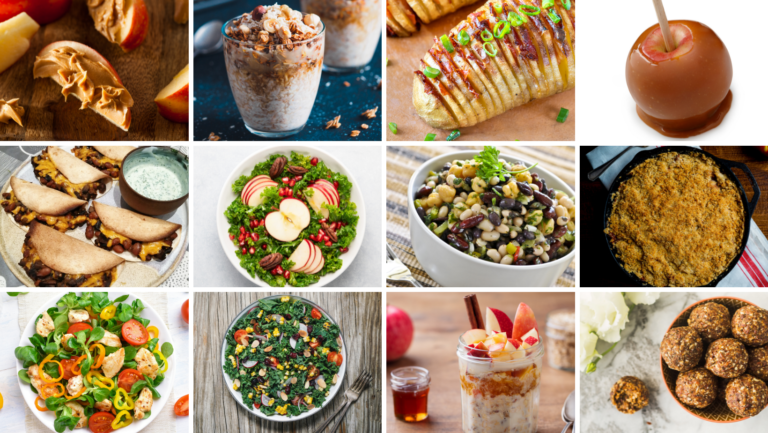Best Vegan Foods For Your Kids Brain Health
Best Vegan Foods For Your Kids Brain Health
If you have or care for children, you most likely want to ensure that they are well-fed so they can enjoy a healthy life. Nutrition is essential for many aspects of health, including brain development and function.
Rapid brain development occurs during the first couple of years of a child's life. By the time your child reaches age two, their brain has grown to 80 percent of its adult size.
Your child's brain develops during adolescence, notably in the prefrontal cortex, the “personality center.” This part of the brain is responsible for executive processes such as planning, memory, and decision-making.
Trusted Source PubMed Central (Database from the National Institutes of Health). Continue reading to learn about the best vegan foods with nutrients for kids' brain health.
1. Dark Chocolate For Your Kids Brain Health
Is there a good reason to eat more chocolate in your diet? Please, yes! Because it lacks the milk proteins found in white or milk chocolate, most high cocoa-content chocolate is vegan-friendly.
Dark chocolate is naturally rich in molecules called ‘flavonoids,' which penetrate and accumulate in the areas of the brain involved in learning and memory, which is wonderful news for brain health.
This improves cognitive function, helps minimize aging effects on the brain, and eliminates brain fog.
Nutrition In Dark Chocolate
A 101g bar of dark chocolate with 70–85 percent cocoa solids, according to the US Department of Agriculture, provides:
- Calories: 604
- Fat: 43.06 grams
- Dietary fibre: 11 grams
- Protein: 7.87 grams
- Carbohydrates: 46.36 grams
- Iron: 12.02 milligrams
- Magnesium: 230.00 milligrams
- Zinc: 3.34 milligrams
- Sugar: 24.23 grams
Risks And Factors To Consider
The flavanols found in cacao solids are principally responsible for dark chocolate's health advantages.
However, the amount of flavanol in dark chocolate varies. Differences in processing between producers can also affect the flavanol concentration of chocolate.
Chocolate makers are not required by law to publish the flavanol content of their goods. However, dark chocolate with a higher percentage of cacao solids should have more flavanols.
Although dark chocolate contains essential antioxidants and minerals, it is typically heavy in sugar and fat, making it a calorie-dense snack. Cocoa butter, which is mostly made of unhealthy saturated fats, is found in dark chocolate.
As a result, you should aim to restrict your consumption of dark chocolate to prevent you from consuming too many calories, fats, and sugars.
On average, dark chocolate contains less sugar than milk and white chocolate, and dark chocolate with a higher cacao solids content often has even less sugar.
Because the amount of sugar in chocolate varies depending on the manufacturer, it's a good idea to read the nutrition label.
2. Blueberries
Is it possible for blueberries to go wrong?! These small but strong berries are a plant-based nutrition powerhouse in a small package.
They're high in antioxidants, especially anthocyanins, which battle free radicals to protect the brain from disease and slow aging.
Research shows that eating a lot of blueberries can aid memory, intelligence, and cognitive function. Blueberries are low in calories and fat but contain a good quantity of fibre.
Nutrition In Blueberries
A 3.5-ounce (100-gram) serving of raw blueberries has the following nutrients:
- Calories: 57
- Fat: 0.3 grams
- Water: 84%
- Protein: 0.7 grams
- Fibre: 2.4 grams
- Sugar: 10 grams
- Carbs: 14.5 grams
3. Avocados
Avocados have earned their place in the spotlight as a plant-powered superfood by being associated with the vegan diet.
Avocados contain a high density of healthy monounsaturated fats, which help support heart health and increase blood flow to the brain, keeping it naturally fueled all day. They also assist in protecting glial cells in the nervous system.
Nutrition In Avocados
The dietary data for around one-half of an avocado, or 68 grams (g), are as follows, according to the National Center for Biotechnology Information (NCBI):
- Calories: 114
- Magnesium: 19.5 milligrams
- Dietary fiber: 6 grams
- Total sugar: 0.2 grams
- Sodium: 5.5 milligrams
- Potassium: 345 milligrams
- Vitamin E: 1.3 milligrams
- Vitamin K: 14 μg
- Vitamin B-6: 0.2 milligrams
- Monounsaturated fatty acids: 6.7 grams
- Vitamin A: 43 micrograms (μg)
How Can You Serve Avocados To Your Child
There are no culinary bounds when it comes to avocados! Though we're used to seeing avocados spread on toast, put into salads, or blended into smoothies, the Dairy Council points out that pureed avocado milk and even avocado ice cream are popular in the Philippines and Brazil.
Overall, this adaptable fruit pairs nicely with practically anything, including soups, salads, dips, desserts, and smoothies, and as a breakfast addition, or dusted with salt and pepper on its own.
4. Tomatoes
Like many colourful vegetables, tomatoes contain plant-based antioxidants, including lycopene. Lycopene is a potent phytonutrient that acts within the brain to prevent cellular damage that leads to dementia, notably Alzheimer's disease.
Lycopene and other carotenoids help protect body fat, which is vital for brain health because our brains are 60% fat. Cooking your tomatoes in a healthy oil, such as avocado or coconut oil, will help you absorb more of this fat-soluble component.
Nutrition In Tomatoes
The water content of tomatoes is around 95%. The other 5% consists mainly of carbohydrates and fibre.
Here are the nutrients in a small (100-gram) raw tomato: Trusted Source (USDA Food Composition Databases)
- Calories: 18
- Water: 95%
- Fiber: 1.2 grams
- Protein: 0.9 grams
- Sugar: 2.6 grams
- Carbs: 3.9 grams
- Fat: 0.2 grams
Minerals And Vitamins In Tomatoes
Tomatoes are high in the vitamins and minerals listed below:
Vitamin C is a powerful antioxidant. This vitamin is a necessary nutrient as well as an antioxidant. A medium-sized tomato can provide about 28% of the Daily Reference Intake (RDI).
Potassium is an essential mineral that helps to control blood pressure and avoid heart disease.
Vitamin K1 is an essential nutrient. Phylloquinone, or vitamin K, is required for blood coagulation and bone health.
Folate is a B vitamin (vitamin B9) found in various foods. It is necessary for proper tissue growth and cell function, especially for expectant mothers.
5. Green Tea
Green tea extract has been proven to activate a working memory-related part of the brain, which increases memory and learning capacity.
Green tea includes L-Theanine, an amino acid that can pass the blood-brain barrier and enhance the production of neurotransmitters like GABA, which can help the brain cope with stress and anxiety.
Green tea also contains EGCG, an antioxidant that boosts mitochondrial function and protects brain cells from harm.
Green tea's brain-boosting properties are also thought to be boosted by increased blood flow to the brain.
Nutrition In Green Tea
245 grams of Green Tea includes
- Sodium: 2.5 milligrams
- Protein: 0.5 grams
- Potassium: 20 milligrams
6. Seeds & Nuts
Both nuts and seeds are high in good fats, which give the brain energy and aid in replenishing individual neurons and brain cells.
They're also high in minerals like zinc, which has been proven to improve memory, and magnesium, which helps the body regulate stress and positively influences mood.
Seeds are notably high in ‘tryptophan,' an important amino acid precursor to the neurotransmitter serotonin, sometimes known as the happy hormone.
Nuts are high in Vitamin E, which protects cell membranes from damage and thus helps to prevent cognitive loss. This is especially true as we approach our 30s, when the brain gradually contracts.
Nutrition In Nuts
Nuts are highly nutritious. One ounce (28 grams) of mixed nuts contains:
- Calories: 173
- Fiber: 3 grams
- Protein: 5 grams
- Fat: 16 grams with 9 grams of monounsaturated fat
- Carbs: 6 grams
- Copper: 23% of the RDI
- Vitamin E: 12% of the RDI
- Selenium: 56% of the RDI
- Phosphorus: 13% of the RDI
- Magnesium: 16% of the RDI
- Manganese:26% of the RDI
Certain nutrients are more abundant in some nuts than in others. One Brazil nut, for example, contains more than 100 percent of the Recommended Daily Intake (RDI) for selenium.
Nuts have a wide range of carbohydrate content. Cashews provide almost 8 grams of digestible carbs per serving, compared to less than 2 grams in hazelnuts, macadamia, and Brazil nuts.
Nuts, on the other hand, are an excellent low-carb food. Nuts can be eaten whole, as nut butter, or broken up and sprinkled on food.
They're commonly available in grocery stores and online and come in salted, unsalted, seasoned, plain, raw, or roasted varieties.
The healthiest option is to eat raw nuts or toast them in the oven below 350°F (175°C). The next best option is dry-roasted nuts, but avoid nuts toasted in vegetable or seed oils.
Nuts can be stored at room temperature, making them convenient for on-the-go snacking and travel. If you plan on storing them for an extended period of time, a refrigerator or freezer will keep them fresher.
Types Of Nuts
- Almonds
- Walnuts
- Brazil nuts
- Cashew nuts
- Hazelnuts
- Pine nuts
- Pecans
- Pistachios
- Macadamias
Please note that peanuts are legumes classified as nuts due to their similar characteristics to other tree nuts.
Types Of Seeds
- Pumpkin seeds
- Psyllium seeds
- Flax seeds
- Poppy seeds
- Sunflower seeds
- Sesame seeds
- Chia seeds
7. Algae-Based Omega-3
Omega-3 fatty acids are derived from algae. They are the most crucial of all the items suggested here to include in your diet because they are the most difficult to obtain.
This is particularly true of DHA, the most beneficial Omega-3 fatty acid, which accounts for 10-15% of brain fat.
DHA is an essential brain nutrient that promotes brain health throughout one's life. There is a lot to learn, from assisting proper brain development in infants to boosting cognition in adults and preventing neurodegenerative illness later in life.
Omega-3 supplementation has been related to a wide range of mental health benefits, including:
- Neuroplasticity is a term that refers to the ability to change one's mind.
- Getting Rid of Anxiety Symptoms.
- Reducing the Risk of Depression by Increasing Alertness and Removing Brain Fog.
- Delaying the onset of Alzheimer's disease and age-related dementia.
DHA is difficult to find in today's diet. This is especially true if you're a vegan or don't consume fatty fish, as it's unavailable in fruits or vegetables.
Although nuts and seeds contain Omega-3, they do so in the form of ALA, which has no discernible benefits for the brain.
Algae is the sole plant-based source of omega-3 DHA, but it's not always easy to incorporate into your diet. The good news is that there is a quick and easy approach to absorbing Omega-3 DHA without eating fish.
8. Whole Grains
Whole grains with a low glycemic index, such as brown cereals, rice, and pasta, can help you stay intellectually attentive and lower your risk of cardiovascular disease.
Whole Grains Include
- Barley
- Brown rice
- Buckwheat
- Bulgur (cracked wheat)
- Millet
- Oatmeal
- Popcorn
- Whole-wheat bread, pasta or crackers
9. Beans
Beans, like black beans and lentils, can help keep blood glucose levels stable. This is critical for brain function because the brain relies on glucose or fuel for energy but cannot store it.
Beans can be used in various dishes, including chilli, nachos, burritos, and burger patties.
Nutrition In Beans
Nutritional profiles differ from one bean to the next. However, as an example, 1 cup (171 grams) of boiled pinto beans offers:
- Protein: 15 grams
- Fat: 1 gram
- Carbs: 45 grams
- Fiber: 15 grams
- Iron: 20% of the Daily Value (DV)
- Calcium: 8% of the DV
- Magnesium: 21% of the DV
- Phosphorous: 25% of the DV
- Potassium: 21% of the DV
- Folate: 74% of the DV
10. Bananas
Bananas, high in B vitamins, can help protect the brain as we age and improve memory. They're also high in magnesium, which can aid in communicating with nerve cells in the brain.
Bananas are a terrific morning food and an easy lunchbox addition. They can also be used to make vegan ice cream.
Nutrition In Bananas
The following are the nutritional values for one medium-sized banana (100 grams):
- Calories: 89
- Water: 75%
- Carbs: 22.8 grams
- Protein: 1.1 grams
- Fat: 0.3 grams
- Sugar: 12.2 grams
- Fibre: 2.6 grams
11. Broccoli
Dementia, Alzheimer's, and other age-related brain deterioration, according to studies, could be connected to a vitamin C deficit, which broccoli is high in.
The vitamin may also help reduce anxiety and tension. Broccoli is high in vitamin K, containing more than 100% of the Recommended Daily Intake (RDI) in just one cup, which can help with cognitive function.
Glucosinolates, vital for central nervous system function, are abundant in the vegetable. Broccoli contains more protein per calorie than steak, so add a bunch to any soup, curry, or pasta dish for a protein boost.
Nutrition In Broccoli
Raw broccoli contains almost 90% water, 7% carbohydrates, 3% protein, and almost no fat. It is also low-calorie, with only 31 calories per cup (91 grams).
The following are the nutritional values for 1 cup (91 grams) of raw broccoli:
- Calories: 31
- Fat: 0.4 grams
- Water: 89%
- Carbs: 6 grams
- Fiber: 2.4 grams
- Protein: 2.5 grams
- Sugar: 1.5 grams
12. Oranges
Due to their sweet flavour, oranges are a favourite citrus fruit among children. Including oranges in your child's diet may help improve his or her overall health and cognitive health.
Oranges contain abundant flavonoids, such as hesperidin and narirutin. Orange juice is, in fact, one of the most widely consumed sources of flavonoids.
Flavonoid-rich foods and beverages, such as oranges and orange juice, have improved nerve activity and blood flow to the brain, potentially improving cognitive function.
Oranges are particularly high in vitamin C, an important mineral for brain function. Vitamin C is required for brain growth, neurotransmitter synthesis, and other functions.
Studies in adults reveal that optimal blood levels of vitamin C are connected with superior performance on tasks involving focus, working memory, attention, recall, decision speed, and recognition compared to vitamin C insufficiency.
Nutrition In Oranges
One medium-sized orange has:
- Calories: 60
- Carbohydrates: 15.4 grams
- Fiber: 3 grams
- Protein: 1 gram
- Sugar: 12 grams
- Vitamin A: 14 micrograms
- Calcium: 6% of your daily recommended dose
- Potassium: 237 milligrams
- Vitamin C: 70 milligrams
13. Green Leafy Vegetables
Encouraging your child to eat leafy greens can be difficult, yet research shows they benefit children's brain health.
Green leafy vegetables like spinach, kale, and lettuce contain brain-protecting substances such as folate, flavonoids, carotenoids, and vitamins E and K1.
According to one study, children who consumed appropriate folate scored higher on cognitive tests than children who consumed insufficient folate.
Furthermore, studies suggest that a diet rich in carotenoid-rich foods, such as leafy greens, can help children's cognitive function.
Leafy greens are high in carotenoids like lutein and zeaxanthin. When you eat these, they build up in the retina, a component of your eye.
The quantity of these pigments in the eye is measured by macular pigment optical density (MPOD).In some studies, MPOD has been associated with improved cognitive performance in children.
Conclusion
A well-balanced vegan diet can boost your child’s brain health by providing essential nutrients like omega-3s, antioxidants, and vitamins.
Foods like walnuts, flaxseeds, leafy greens, and berries support memory, focus, and learning. Prioritizing plant-based, nutrient-dense meals helps cognitive development and overall well-being.
Making mindful choices sets the foundation for lifelong healthy eating habits that nurture the brain and body.
I trust you enjoyed this article on the Best Vegan Foods For Your Kids Brain Health. Please stay tuned for more blog posts soon. Take care!
JeannetteZ
>>>Want To Learn How To Create Your Own Delicious, Healthy AND 100% Vegan Meals For You And Your Family? Click here for My #1 Recommendation<<<
Your Opinion Is Important To Me
Do you have thoughts, ideas, or questions? Do you have any questions or ideas? I would love to hear from you. Please leave me your questions, experiences, and remarks about this article on the Best Vegan Foods For Your Kids Brain Health in the comments section below. You can also reach me by email at Jeannette@LivingTheVeganLifestyle.org.
Disclosure
This post may contain affiliate links. I earn from qualifying purchases as an Amazon Associate and other affiliate programs. Please read my full disclosure.
Here are links to some of my favourite articles:
11 Delicious Homemade Vegan Baby Food Recipes
11 Most Delicious Seed Cracker Recipes For Vegan Kids
9 Tasty Vegan Snacks For Breastfeeding Moms
33 Best Vegan Restaurants In Geneve, Switzerland
37 Best Vegan Restaurants In Aarau, Switzerland




















